First Aid Kit: “Every song we write has to sound great on just guitar and vocals. If it doesn’t, then it’s not ready”
Talking Ouija boards, elections and '20s Gibsons with the Swedish folk duo
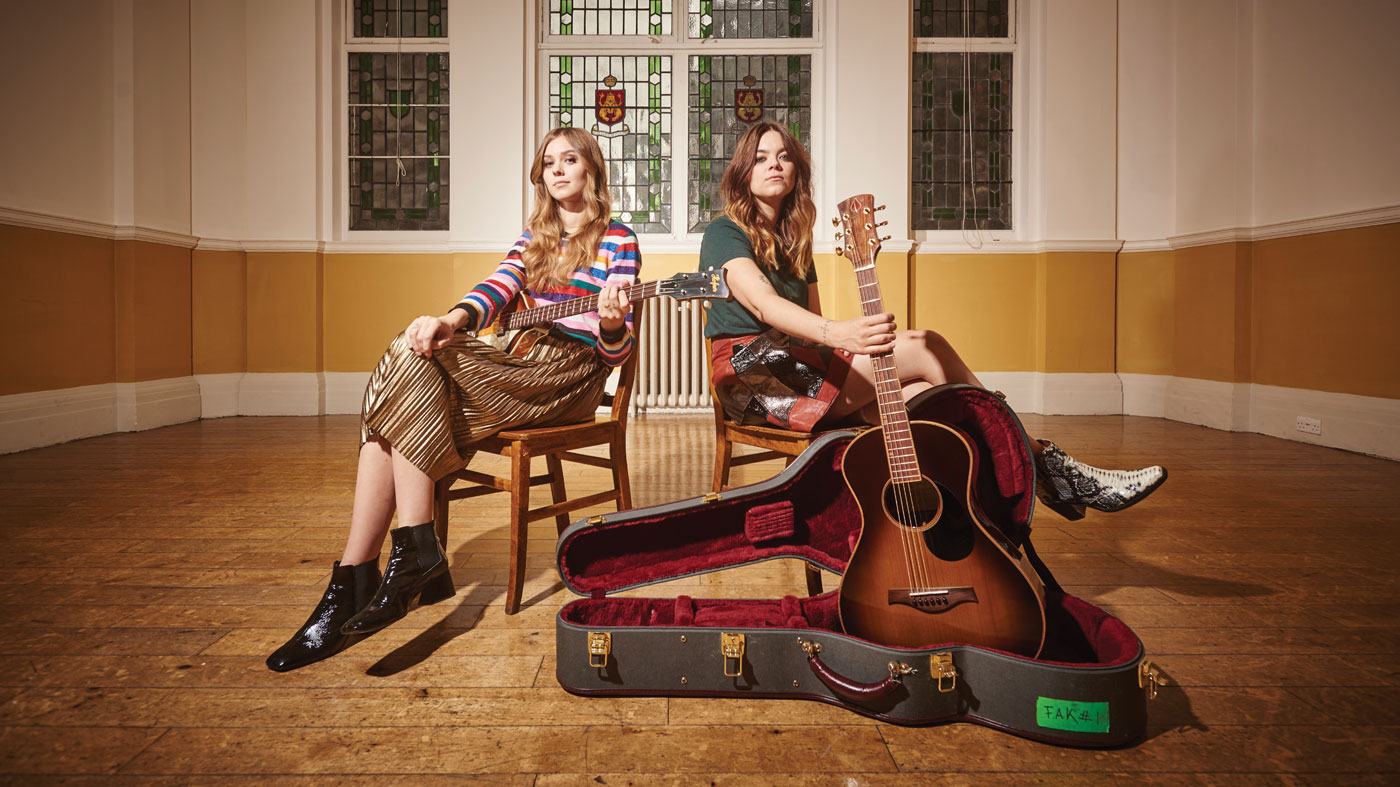
Want all the hottest music and gear news, reviews, deals, features and more, direct to your inbox? Sign up here.
You are now subscribed
Your newsletter sign-up was successful
One of Sweden’s finest exports since ABBA, Klara and Johanna Söderberg’s brand of twinkly country folk has won them loyal fans. But as George Henry King found out, their sound - and attitude - has had to toughen up.
In October 2017, First Aid Kit celebrated their tenth year as a band, but it’ll be August this year that marks perhaps their most life-changing anniversary. After uploading a cover of Fleet Foxes’ Tiger Mountain Peasant Song to YouTube in 2008, Sweden’s Klara and Johanna Söderberg became internationally known after the video went viral. Their notable youthfulness, yet pitch-perfect ear for a harmony oozed a level of maturity beyond their years; their crystal clear talent juxtaposing the grainy, phone-filmed footage in which they featured.
We needed to explore who we are when we are not being First Aid Kit
Ten years on, and the duo’s early potential has unsurprisingly blossomed. Critically-acclaimed albums have come to be expected, and high-profile collaborations with the likes of Bright Eyes’ Conor Oberst, REM’s Peter Buck and even Fleet Foxes themselves, are often only a phone call away. But being in demand has taken its toll.
By the time First Aid Kit’s touring commitments for their third LP, Stay Gold, had come to an end, the Swedish sisters had been on the road for around six years, and they were desperately longing for a well-deserved break.
In between tours, their days off would be spent either continuously writing songs or in recording studios, painstakingly trying to finish what would go onto become critically-acclaimed albums. But their live shows suffered as a result, and the level of love and passion the pair initially had for performing had dwindled, and left them feeling as if they were on autopilot.
“It got to the point where we had to stop because we were so exhausted and we just needed some time,” states Klara (vocals and guitar), the younger of the two sisters. “We just wanted to see what it was like to be in the same place for more than ten days in a row,” adds Johanna (vocals, keyboards, autoharp and bass), sipping on her flat white.
“Touring and living that kind of life was the only life we knew, so it was necessary to take some time off because we needed to explore who we are when we are not being First Aid Kit.”
Want all the hottest music and gear news, reviews, deals, features and more, direct to your inbox? Sign up here.
And explore is exactly what they did. Having been somewhat cut-off from reality since the ages of 16 and 18, after being picked up almost instantly by the occasionally unforgiving clutches of the music industry’s teddy picker, First Aid Kit subconsciously bypassed the opportunity to grow up in the same ways that other teenagers get to. And so when the decision to “have six months off where we don’t have to think about making a new record” was made, the sisters set out to make up for lost time and accomplish things they had missed out on while growing up within the bubble of their very own musical success story.
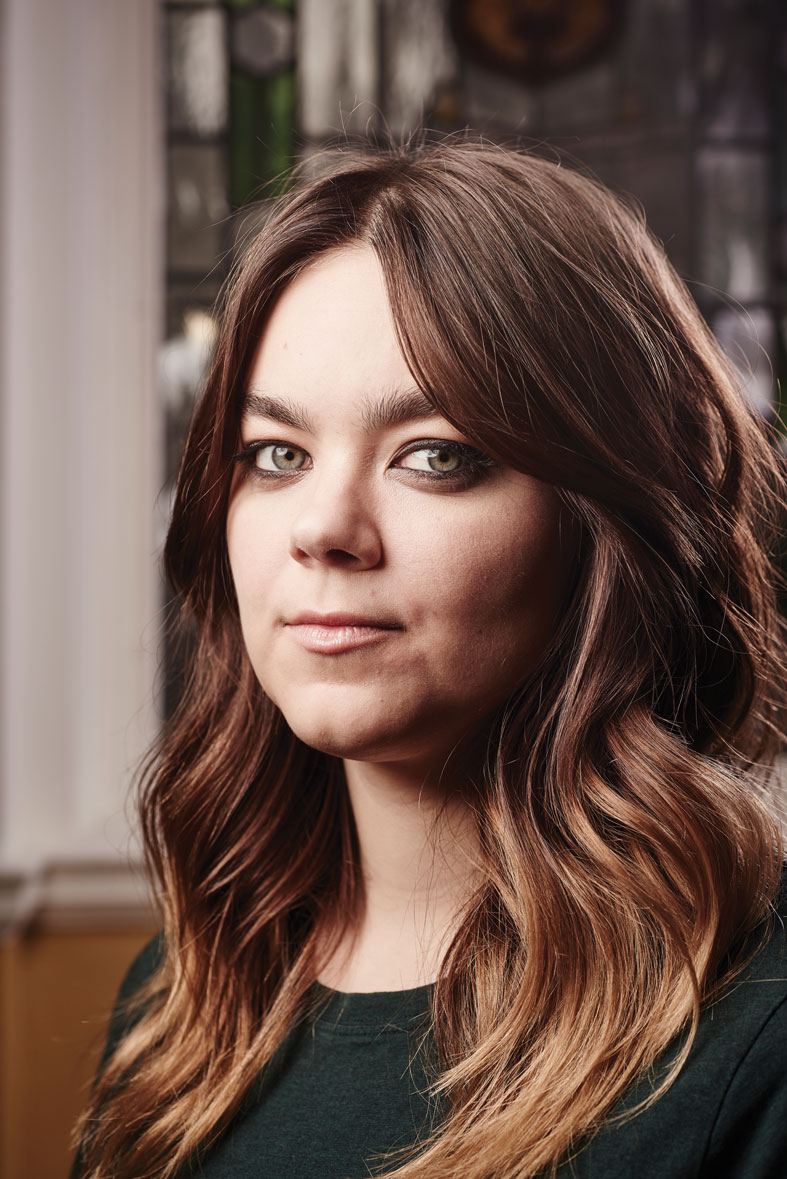
Beyond the lighted stage
Klara experienced both the joys of falling in love and the pain of reeling from heartbreak, acquired a dog named Harpo and moved to Manchester. Johanna on the other hand passed her driving test, hung out with friends and purchased an apartment. Upon reflection, the pair agree that having to grow up fast, in such a demanding and pressure-oozing environment had both positive and negative implications.
“What we have done is so incredible and we are so lucky to get to do it, but you’re very aware of yourself when you’re onstage. So, when you’re a young person and you’re trying to figure out who you are and everyone is watching you kind of do that, it is pretty intense,” admits Klara. “But then it’s also really helpful as a teenager when you go up onstage and it’s like, ‘Shit, people actually really like what we do.”’
I'd started Googling and reading about the Ouija Board and I got really freaked out
Once their time off came to an end, and after overcoming a brief bout of writer’s block as a result of their time away from their respective instruments and the songwriting mindset, Klara and Johanna moved across the pond to LA and started to generate ideas for what would eventually go onto become their fourth studio album, Ruins.
After writing nine songs in just five weeks and spending their downtime driving around California listening to their favourite records, the duo took a trip to Joshua Tree, where they rented a house, drank wine and battled with the decision of whether or not to summon evil demons.
“I'd started Googling and reading about the Ouija Board,” explains Klara. “And I got really freaked out. I like to think that I am a rational person who doesn’t believe in magic, but when you’re out in the desert and it’s super quiet, there is a storm and you’re in this weird house with this Ouija Board you’re like, if there are evil demons and I could summon one right now, would I really want to do that? Probably not’. So we wrote a song instead.”
The song they composed ended up being one of 18 songs that the band eventually headed into the studio with. Having decided that it was important to not rush the process of this record, First Aid Kit allowed themselves to spend more time on the production side of the album than they had on any of its predecessors - despite fearing that people may have forgotten about them, given the lengthy period in which they hadn’t released new material. And that wasn’t the only sign of the duo starting to flex their ever-growing, music-making muscles.
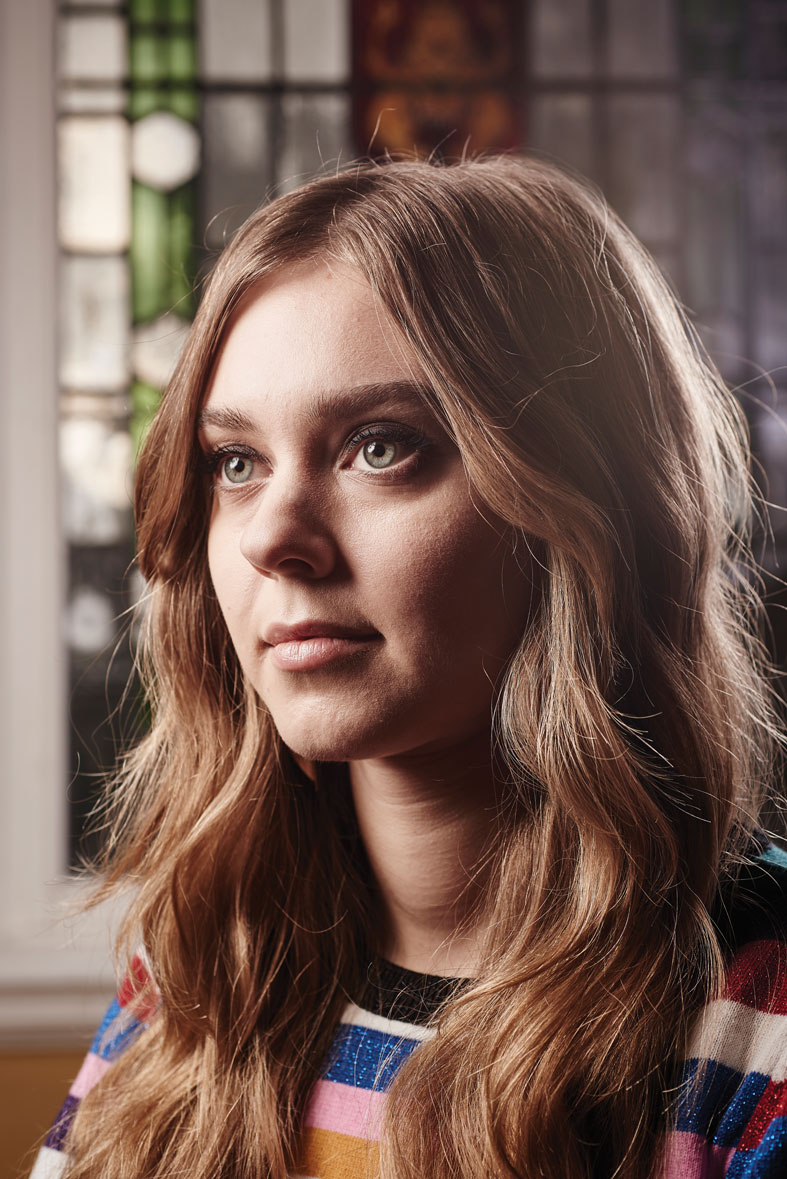
Removing the polish
After Klara instigated a personal conversation with long-time collaborator and producer Mike Mogis about the band’s desire to push past the boundaries of the comfort zone in which they had existed for their previous three records, American producer Tucker Martine was hired to man the mixing desk and satisfy the band’s yearning for a “less-polished” and “more raw” sounding record.
We just kind of left the band to improvise and we didn’t give them too many instructions, but they were incredible
Once the decision had been made, in order to help emulate the group’s live sound and “make the listener feel as if they were in room” when they recorded the album, Klara and Johanna entrusted Tucker to put together a full live band - something Johanna was initially sceptical about.
“I think on the previous records we have played a lot of the instruments ourselves, but this time we kind of let it go a bit more,” she explains. “That was a little hard to do, but they [the band] just knew what we wanted. I was definitely a little worried about how it was going to go, but they just nailed it. We just kind of left them to improvise and we didn’t give them too many instructions, but they were incredible.”
As a result of Klara’s experience with heartbreak prior to the initial writing process for Ruins, when compared to First Aid Kit’s last two, more commercial sounding LP’s Stay Gold (2012 ) and Lion’s Roar (2014), Ruins is instantly more definable due to its darker lyrical content and occasional scowling soundscape. And although the pair didn’t set out to consciously write a break-up record when they first started gathering songs for their latest release, naturally Klara’s emotions bled into both the music and the lyrics.
“We don’t have a concept before writing. But I can say now that it does feel like a break-up record and I think that’s the theme on this record. When you’re going through something, writing helps you to get so much perspective on things,” says Klara, candidly. “It is really hard to be in a relationship when you’re a musician,” adds Johanna.
As well as having to deal with the demise of a long-term relationship, both Klara and Johanna also had something else to contend with when readying themselves to write Ruins: the unspoken pressure of writing a record that would be equally as successful, if not more successful, than their critically acclaimed previous three releases.
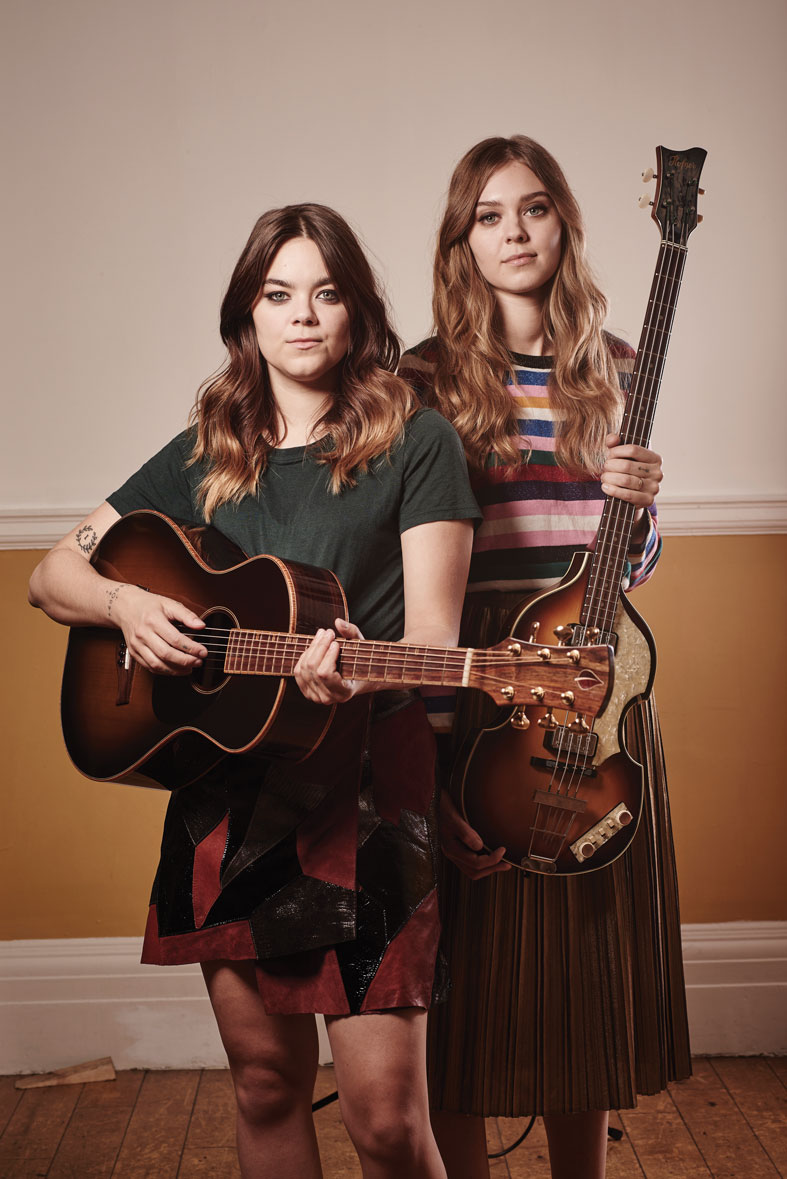
Still gold
Their 2010 debut album, The Big Black and the Blue may have failed in making much of a commercial impact when it was released back in 2010, but Lion’s Roar and the orchestral, three minute symphonies of Stay Gold have since picked up the slack and have collectively sold over 200,000 copies in the UK alone. But as First Aid Kit advise me, not every album can be a masterpiece.
“I am super proud of this record and I think it’s a great follow-up to Stay Gold,” says Johanna, as Klara nods in agreement. “People’s expectations are higher, but there’s no My Silver Lining or Emmylou on this record and we are not going to write those songs again. We try to see our career as a long-term thing and we are going to make lots of records and each one of them can’t be a masterpiece. I’m not comparing us to Bob Dylan or Paul Simon, but they made so many records and they are not all masterpieces and that’s okay. Basically what we are saying is, we are the new Bob Dylan,” jokes Johanna, before the pair burst into laughter.
[With You Are The Problem Here] it's not like we're saying something outlandish. It's just like, raping women is wrong. Don't do it. It should be obvious
Earlier last year, First Aid Kit released a one-off single entitled, You Are The Problem Here on International Women’s Day. The track was written after both Klara and Johanna were inspired and angered by the lenient sentencing of a convicted rapist, and since its release, the track has become an anti-sexual assault anthem - echoing the views of many and educating those whose opinions may have not previously aligned with those expressed in the song.
Prior to its departure from band to audience, however, First Aid Kit debated at great length about whether or not to actually release it, due to its lyrical content, punk and angst-driven sound and because surprisingly, there aren’t many other songs that have been released that actually address such a sensitive issue in such an transparent way.
“It's pretty straightforward and it's not like we're saying something outlandish. It's just like, raping women is wrong. Don't do it. Don't rape women. It should be obvious and it should not be something that we're talking about, but we are and so there needs to be change.”
After releasing the song, the duo admit that they were fearful of the possible repercussions - but thankfully the track was received positively; instead it was the band’s political stance that in fact led the duo to being on the receiving end of a barrage of frightening comments.
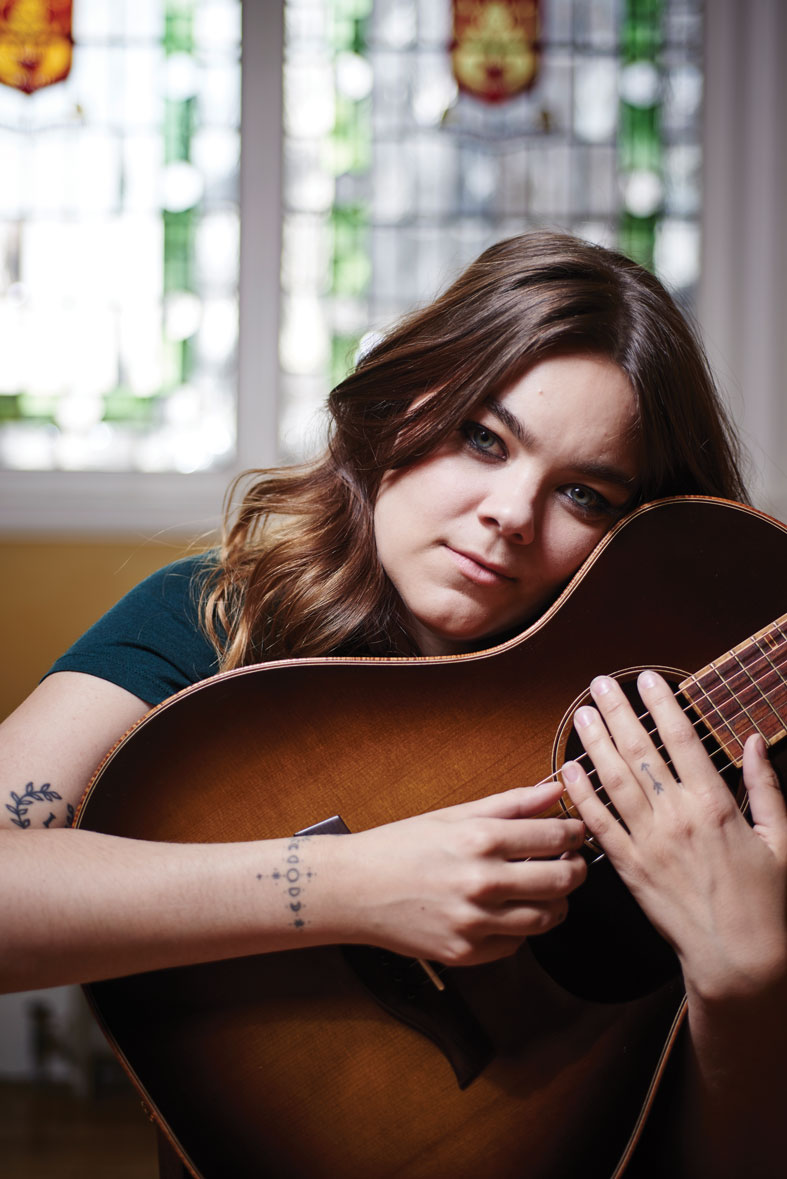
Trumped
On the night of the US Presidential election, First Aid Kit used their social media platforms to write a post in support of Hillary Clinton, in which they urged their fans to “do the right thing and vote for her” - much to the dismay of First Aid Kit’s Trump-supporting fans. “We got rape threats from that,” Johanna admits. “And some really horrible, patronising comments.”
“So many of our listeners were Trump supporters,” adds Klara. “But we have a lot of women come to our shows and so I’d rather say, ‘This is what we stand for.’ It feels so great to talk about these issues and give them a voice.”
If the media give men more attention then women aren't going to do as well. So it's not just the promoters - it's everything
In light of the recent revelations that have come out of Hollywood, I ask First Aid Kit if such behavior also exists within the music industry and if so, to what extent does it exist. Somewhat unsurprisingly, and sadly, my assumptions are confirmed.
“For sure - it’s a boys' club,” Johanna instantly replies, before enlightening me to the time an undisclosed record label suggested making First Aid Kit’s early album “sexy,” despite the fact that Klara was only 14 at the time.
“Now when I look back at it I think it's so crazy,” admits Klara upon reflection. “It's hard, and as a woman, people are going to comment about the way you look and you become aware of that and in some ways I wish I could just go 'fuck it, I'm not going to put makeup on.”’
It is also an uphill battle, in recent years, for female musicians and bands to gain exposure in the mainstream media and invites to perform at popular music events. Major music festivals such as Reading and Leeds Festival, for example, have been criticised recently at great lengths for their male-dominated line-ups and First Aid Kit insist it’s time for change.
“In Sweden, festivals are deliberately started to make it 50/50, men and women. Sweden has a lot of issues, but when it comes to feminism I think we are in a good place. There are big female artists about today, but they don't get the attention they deserve. Like, put a women on the cover of Mojo! Is it really that hard?” asks Johanna.
“If the media give men more attention,” Klara adds, “then women aren't going to do as well. So it's not just the [festival] promoters - it's everything.”
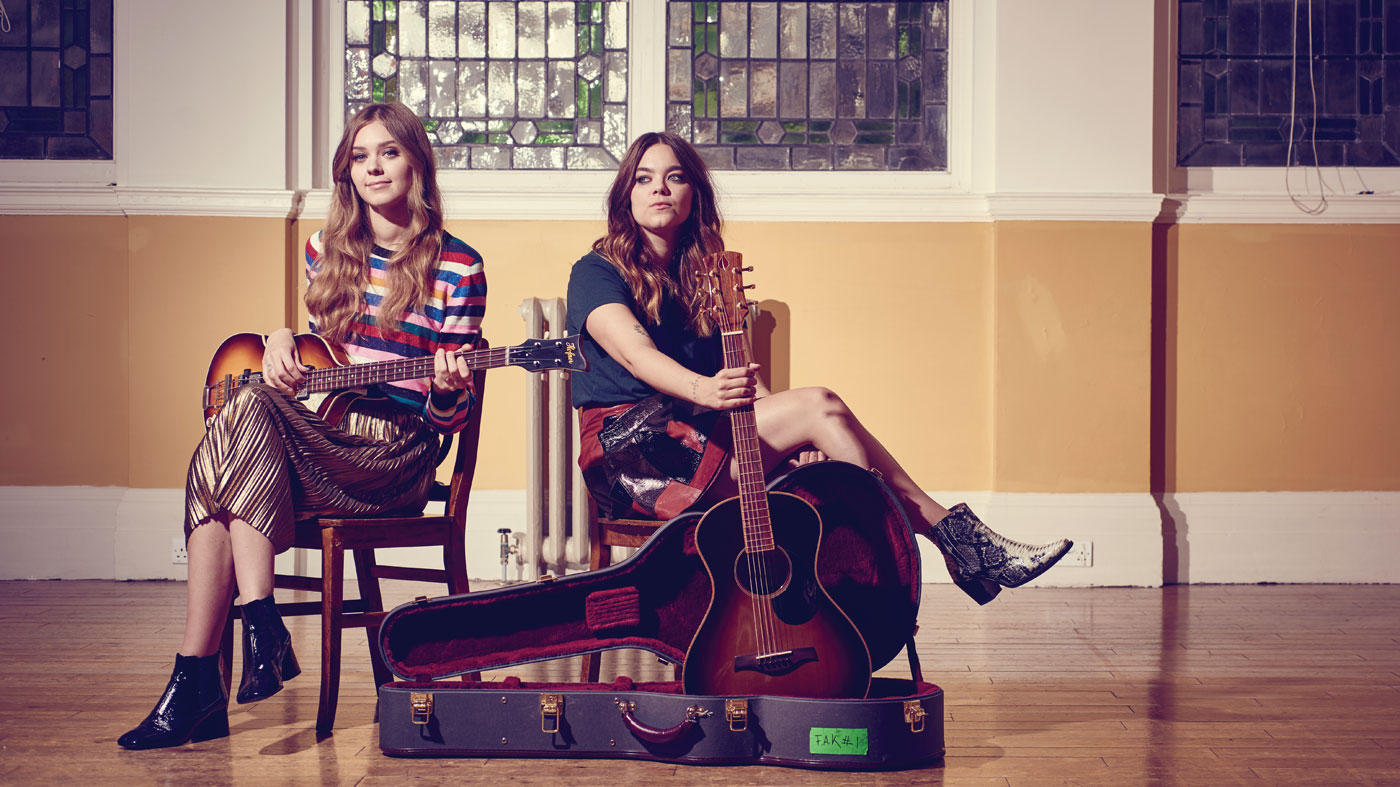
It starts in school
When growing up, Klara and Johanna were frequently encouraged to be creative by their parents. Their father was part of a popular Swedish rock band up until Johanna was born, and their mother taught cinematography. They were never forced to pursue music, but naturally the draw of music was too enticing to resist and the pair were eager singers even from an early age - often performing their own concerts using a skipping rope for a microphone.
Children need to play music and school is so formulaic... it's such a great way to express yourself and kids need that
They credit Sweden’s schools for their encouraging attitude to teaching music in educational institutions, but given the UK government’s constant slashing of Arts funding, how damaging could such cuts be to the creative freedom and development of our young, budding musicians?
“It's really damaging because children need to play music and school is so formulaic,” Klara replies. “You have to be good at maths, but I was never good at maths and I never will be, but I had music and writing and I was good at that. I feel like it's such a great way to express yourself and kids need that - it's such a great outlet to express your emotions.”
Guitarist and vocalist Klara first started to learn the guitar at the age of 13, after their dad purchased her a £40 Spanish guitar. Although her dad initially “didn’t think I would stick with it”, she tells me that to this day she still plays it live and even writes songs with it, but her go-to instrument currently is a Martin 00-DB Jeff Tweedy signature model. Clearly the importance of the acoustic still holds a place in the hearts of First Aid Kit . And Johanna can’t stress enough how important and powerful the simplicity of an acoustic accompanied by merely a vocal is.
“The song has to be so strong and stand on its own without the production and it has to tell a story, whereas today all the songs are just mass-produced crap. On the radio all the songs just sound the same and I think people are just longing for a connection with something that has more of a real human emotion behind it where you can tell who is the messenger and who wrote it and we always have to have that - every single song we write has to sound great on just guitar and vocals. If it doesn’t, then it’s not ready.”
Just before First Aid Kit’s PR brings our conversation to an end, I wonder what the next ten years will bring for First Aid Kit. “We want to do things in a sustainable way. We want to try different genres and release a Christmas album,” says Johanna. I couldn’t think of a better Christmas present.
Gearbox
“We were in Nashville in this guitar shop called Carter Vintage Guitars and I saw this guitar and I was just drooling because it was the most beautiful guitar I’d ever seen. It was a Gibson from 1928 and I think there was just one made. I loved it so much, but I couldn’t afford it and I almost cried because I needed that guitar in my life,” says Klara before Johanna takes over the story.
“So, I posted a photo of me with it on Instagram saying ‘We want this guitar, but can’t afford it.’ Then we met up with Jack White for dinner, because we had toured with him and he was just like, ‘So girls, I have something for you,’ and then he came in with two instruments that we instantly recognised. It was the guitar and he also bought me a Gibson Mandolin from the 1920s that matches Klara’s guitar. They are like museum pieces!”
First Aid Kit’s new album, Ruins, is out now via Columbia Records.

